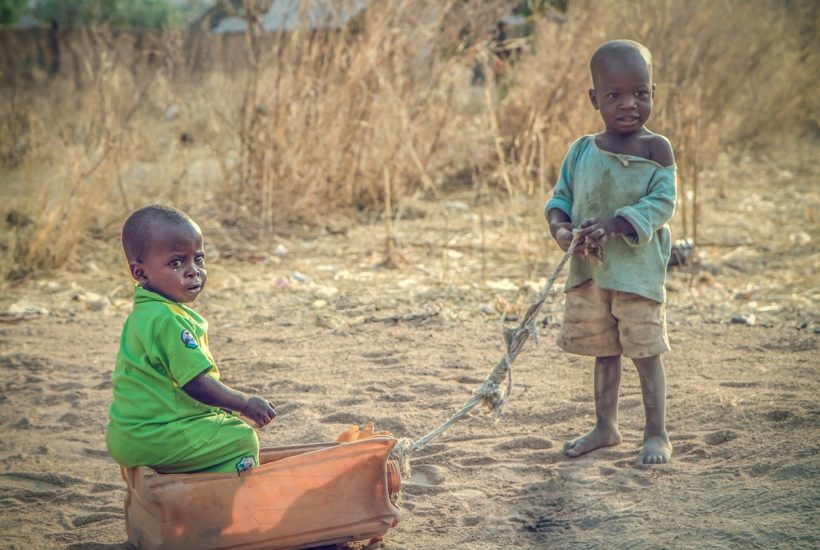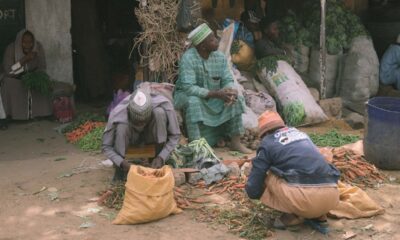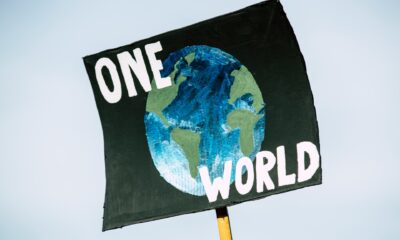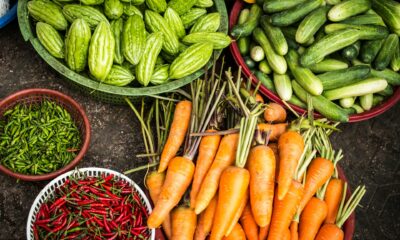Africa
Burkina Faso: Japan grants $6.5 million for access to health, education for the most vulnerable children
The grants follow a partnership signed between the Government of Japan, the Japan International Cooperation Agency (JICA) and UNICEF Burkina Faso in February 2021 for the construction of 18 post-primary schools in the Center and Center-South regions. Japan has also invested $4.5 million in a second project that will reduce the risk of the spread of diseases related to water, and poor hygiene practices.

Japan’s Government has granted UNICEF Burkina Faso $6.5 million (or 3.6 billion CFA francs), to implement interventions for the country’s most vulnerable populations.
In Burkina Faso, four out of ten people (40.1 percent) live below the poverty line and more than half of the national population are children (52 percent). In addition, there are more than one million internally displaced persons (IDPs) in the country, 61 percent of whom are children who are at risk of being exposed to violence, dropping out of school, and having their health conditions deteriorate.
To help address this situation, the Government of Japan has allocated $2 million (1 billion CFA francs) to support the national authorities in a project that will strengthen access to health services, education, and water, hygiene and sanitation facilities for the displaced population.
More than 700,000 people will be sensitized to social cohesion and peace education in an approach that links humanitarian emergency, development and peacebuilding response strategies (triple nexus emergency-development-peace).
Read more on the subject and find other important economic news from around the world, with the Born2Invest mobile app.
The Government of Japan has also invested $4.5 million in a second project
With the support of partners, community health services will be strengthened through the training and provision of equipment for 3,000 community-based health workers, whose health coverage will benefit more than 80,000 children under the age of five (including 41,600 girls). In addition, 600 out-of-school children will benefit from accelerated classes and will also be sensitized to the culture of peace.
“The cooperation between Japan and UNICEF will help to increase the health and education offer by improving the living environment of vulnerable children, in order to keep them away from radicalization and violent extremism. This is a major step forward in the development of the country,” said H.E. Kato, Ambassador of Japan to Burkina Faso.
In support of the Government of Burkina Faso, Japan has also invested $4.5 million (2.6 billion CFA francs), in a second project that will reduce the risk of the spread of diseases related to water, sanitation and poor hygiene practices, including COVID-19.
With this funding, UNICEF and its partners will be able to improve access to safe drinking water for 180,000 people affected by the humanitarian crisis and ensure better health care for more than 123,750 children and more than 88,750 adults through the provision of 8,572 water, hygiene and sanitation kits. Thanks to these kits, the displaced populations will be able to benefit from soap, buckets, jerry cans, mats, cooking utensils, solar lamps and impregnated mosquito nets.
“In this context of increasing vulnerability of families, access to water, hygiene and sanitation is crucial for the health of children and their families. Families need safe water for feeding, cooking and maintaining personal hygiene essential to prevent deadly diseases, especially for newborns and children under five who are particularly fragile,” said UNICEF Representative in Burkina Faso Sandra Lattouf.
“Adopting a multi-pronged approach in support of the Government, which includes health, education, and water, hygiene and sanitation interventions, ensures that we reach people more effectively. The partnership with the Government of Japan will help make a difference for the most vulnerable children in Burkina Faso,” she added.
The grants follow a partnership signed between the Government of Japan, the Japan International Cooperation Agency (JICA) and UNICEF Burkina Faso in February 2021 for the construction of 18 post-primary schools in the Centre and Centre-South regions.
UNICEF works in some of the most inhospitable places in the world to reach the most disadvantaged children. In more than 190 countries and territories, we work for every child, every day, to build a better world for all.
__
(Featured image by Raphealny via Pixabay)
DISCLAIMER: This article was written by a third party contributor and does not reflect the opinion of Born2Invest, its management, staff or its associates. Please review our disclaimer for more information.
This article may include forward-looking statements. These forward-looking statements generally are identified by the words “believe,” “project,” “estimate,” “become,” “plan,” “will,” and similar expressions. These forward-looking statements involve known and unknown risks as well as uncertainties, including those discussed in the following cautionary statements and elsewhere in this article and on this site. Although the Company may believe that its expectations are based on reasonable assumptions, the actual results that the Company may achieve may differ materially from any forward-looking statements, which reflect the opinions of the management of the Company only as of the date hereof. Additionally, please make sure to read these important disclosures.
First published in lefaso.net, a third-party contributor translated and adapted the article from the original. In case of discrepancy, the original will prevail.
Although we made reasonable efforts to provide accurate translations, some parts may be incorrect. Born2Invest assumes no responsibility for errors, omissions or ambiguities in the translations provided on this website. Any person or entity relying on translated content does so at their own risk. Born2Invest is not responsible for losses caused by such reliance on the accuracy or reliability of translated information. If you wish to report an error or inaccuracy in the translation, we encourage you to contact us.

-

 Crypto5 days ago
Crypto5 days agoCaution Prevails as Bitcoin Nears All-Time High
-

 Africa2 weeks ago
Africa2 weeks agoMorocco’s Wheat Dependency Persists Despite Improved Harvest
-

 Biotech1 week ago
Biotech1 week agoEcnoglutide Shows Promise as Next-Generation Obesity Treatment
-

 Markets2 weeks ago
Markets2 weeks agoCocoa Prices Drop Amid Speculative Selling and West African Supply Concerns

























